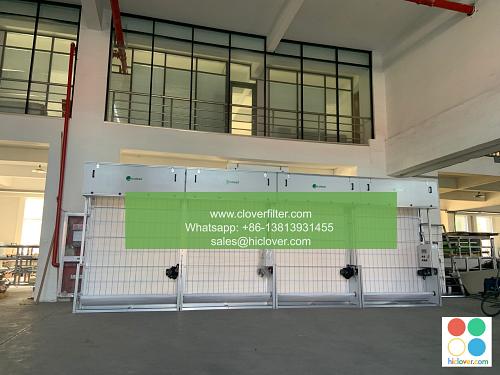How to Choose the Right Air Filter for Government Buildings

Government buildings, such as offices, courthouses, and administrative facilities, require a high level of indoor air quality (IAQ) to ensure the health, comfort, and productivity of occupants. A critical component of achieving good IAQ is the installation of an effective air filtration system. With numerous air filter options available, selecting the right one can be a daunting task. In this article, we will provide guidance on how to choose the right air filter for government buildings, highlighting various application areas and key considerations.
Understanding Air Filter Types and Applications
Air filters come in different types, each designed for specific applications and offering distinct benefits. The most common types of air filters used in government buildings include:
* HEPA (High Efficiency Particulate Air) filters: Designed to capture 99.97% of particles as small as 0.3 microns, HEPA filters are ideal for applications where high levels of cleanliness are required, such as in hospitals, laboratories, and sensitive equipment rooms.
* Activated Carbon filters: Effective in removing gases, odors, and volatile organic compounds (VOCs), activated carbon filters are often used in areas with high levels of air pollution, such as near highways or industrial sites.
* Pre-filters: Designed to capture larger particles, pre-filters help extend the life of more efficient filters, such as HEPA filters, by preventing them from clogging with debris.
* UV (Ultraviolet) filters: Using UV light to kill bacteria, viruses, and other microorganisms, UV filters are commonly used in applications where high levels of disinfection are required, such as in healthcare facilities and food processing areas.
Key Considerations for Selecting Air Filters
When choosing an air filter for a government building, several key factors should be considered:
* Filter Efficiency: The filter’s ability to capture particles of various sizes, measured by its MERV (Minimum Efficiency Reporting Value) rating.
* Airflow Rate: The filter’s ability to handle the required airflow rate, measured in cubic feet per minute (CFM).
* Filter Life: The lifespan of the filter, which can range from a few months to several years, depending on the type and application.
* Maintenance Requirements: The ease of maintenance, including filter replacement and cleaning, which can impact the overall cost of ownership.
* Cost: The initial purchase price, as well as ongoing operating costs, such as energy consumption and replacement filters.
Application Areas in Government Buildings
Air filters can be used in various application areas within government buildings, including:
* Office Spaces: HEPA filters or high-efficiency pre-filters can be used to improve IAQ and reduce the spread of airborne illnesses.
* Conference Rooms: Activated carbon filters can help remove odors and VOCs, while UV filters can provide an additional layer of disinfection.
* Data Centers: High-efficiency filters, such as HEPA or ULPA (Ultra Low Penetration Air) filters, can help protect sensitive equipment from dust and other airborne contaminants.
* Healthcare Facilities: HEPA filters, UV filters, and other high-efficiency filters can be used to maintain high levels of cleanliness and disinfection.
Conclusion
Choosing the right air filter for government buildings requires careful consideration of various factors, including filter type, efficiency, airflow rate, and maintenance requirements. By understanding the different types of air filters and their applications, facility managers and building owners can make informed decisions to ensure good IAQ, protect occupant health, and reduce the risk of airborne illnesses. Whether it’s a HEPA filter for high-efficiency applications or an activated carbon filter for odor removal, selecting the right air filter is crucial for creating a healthy and productive indoor environment in government buildings. You haven’t provided a question or topic for discussion. What would you like to talk about?

